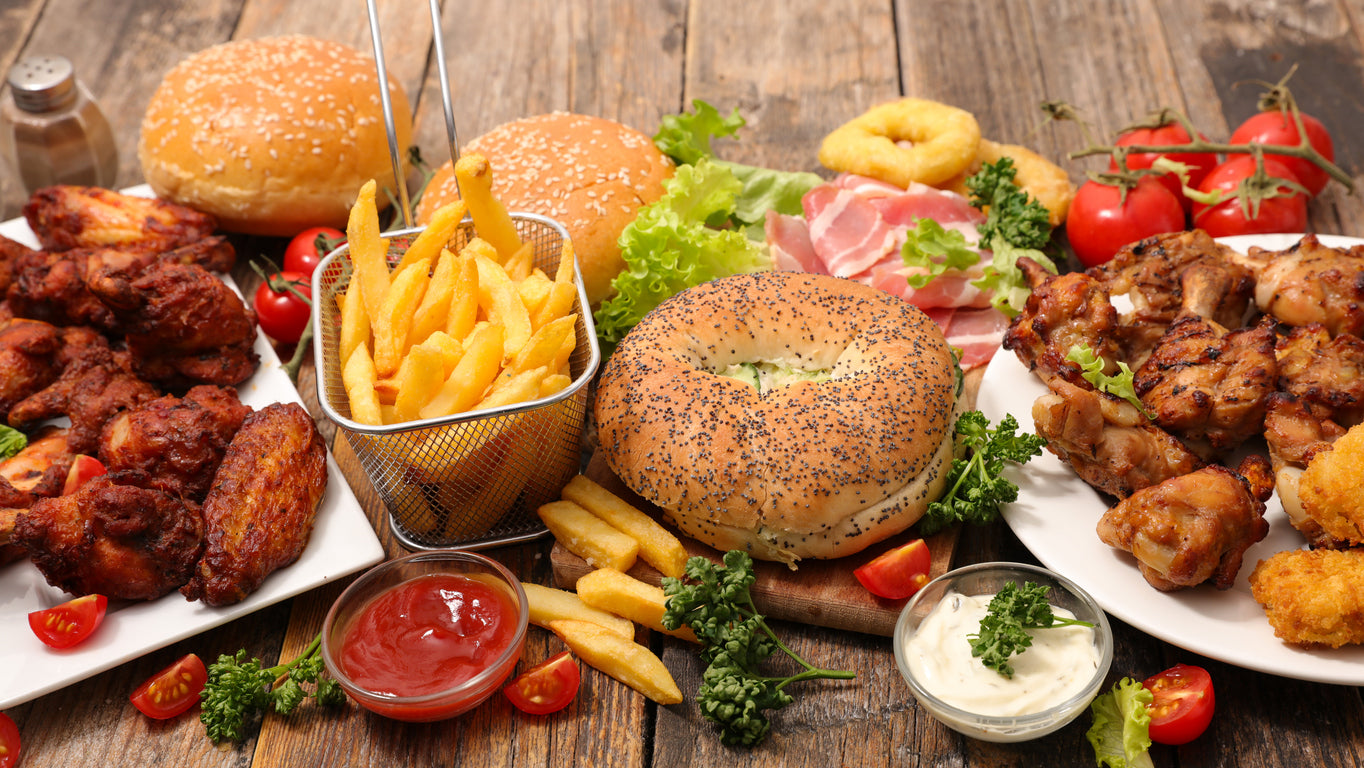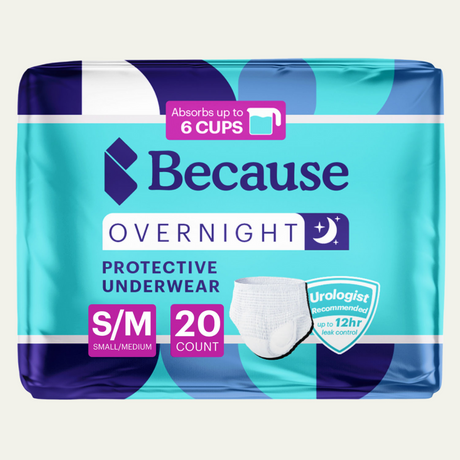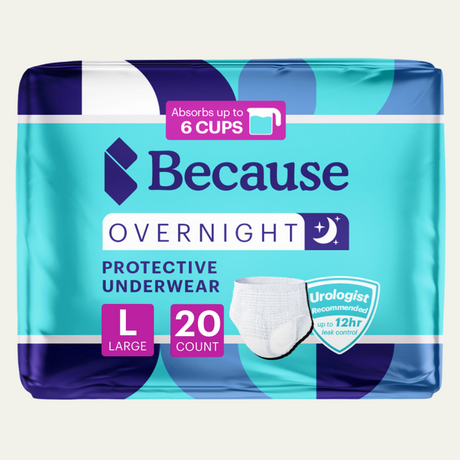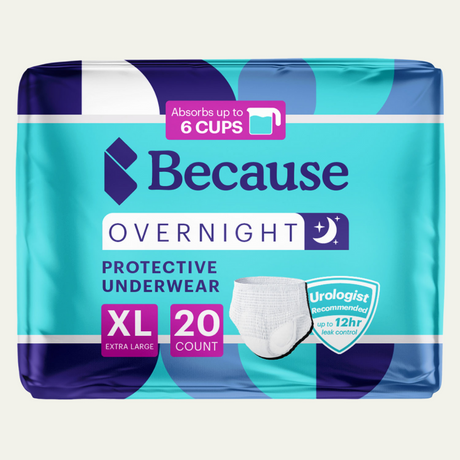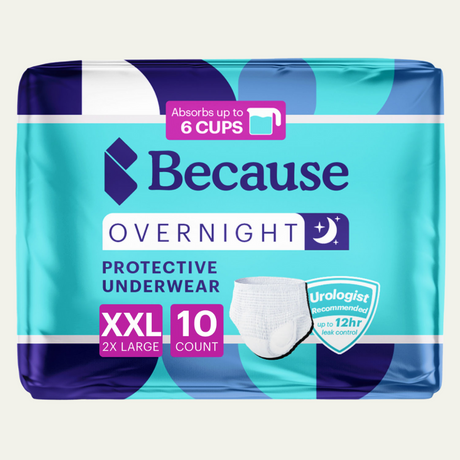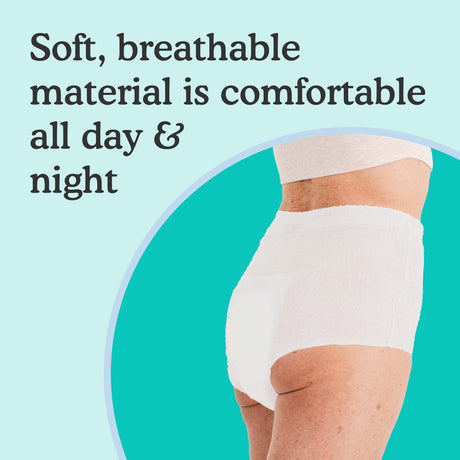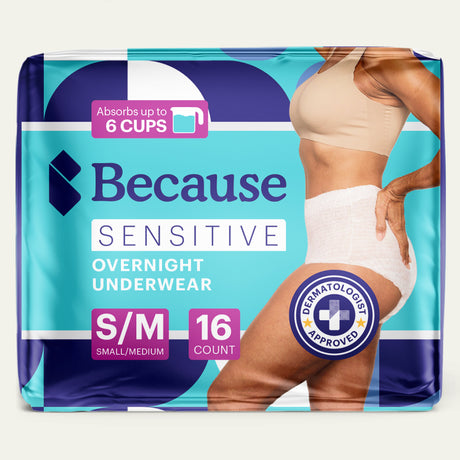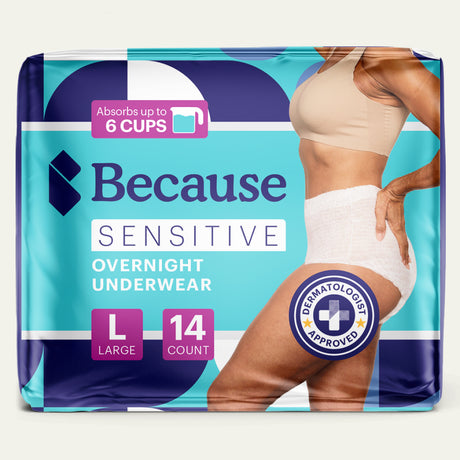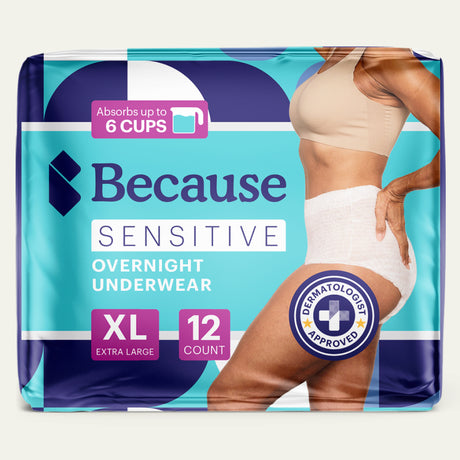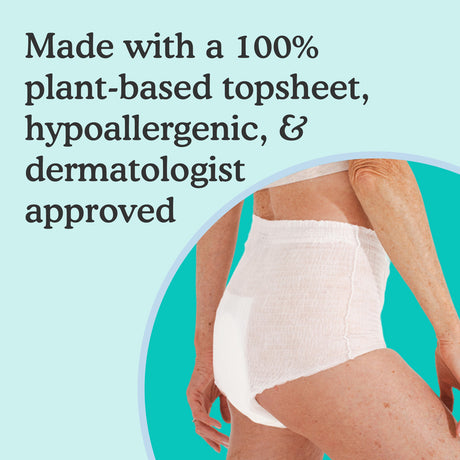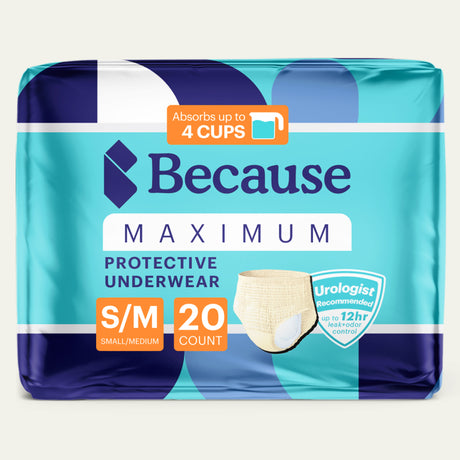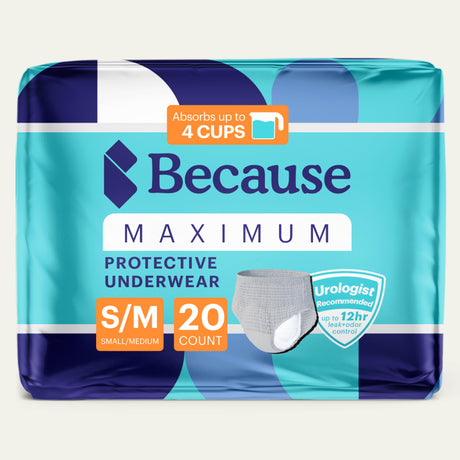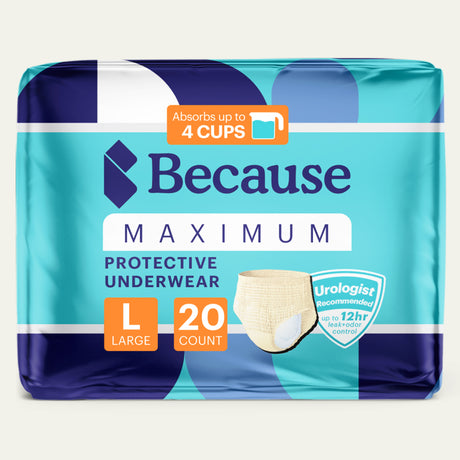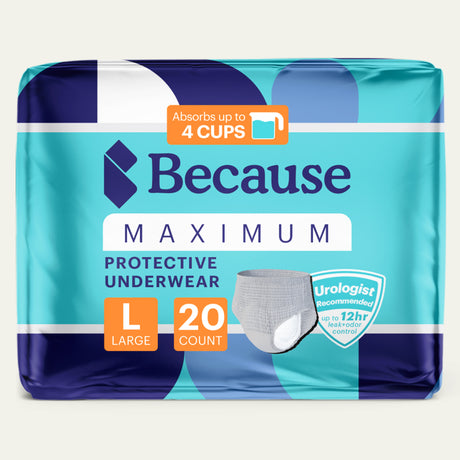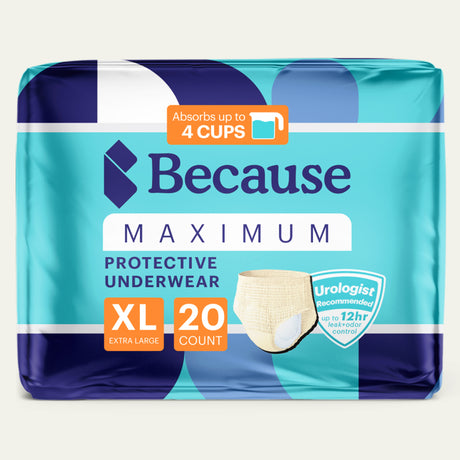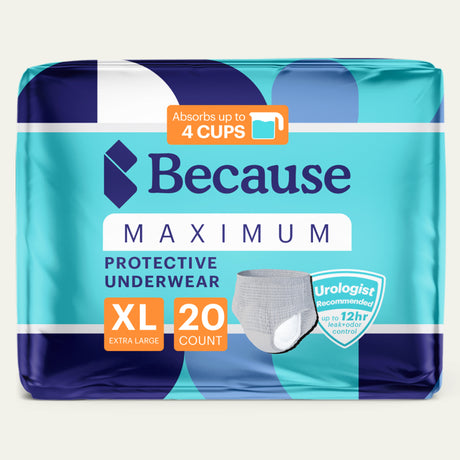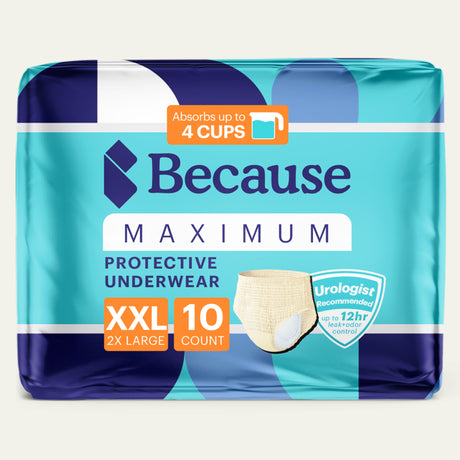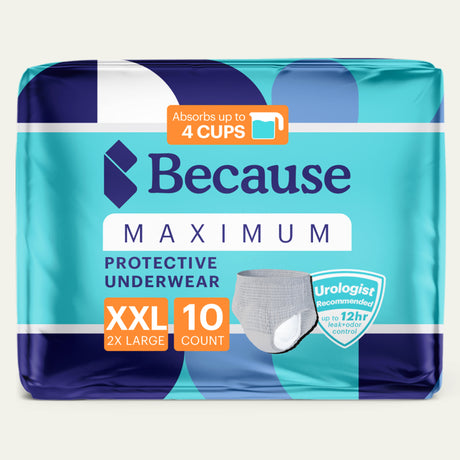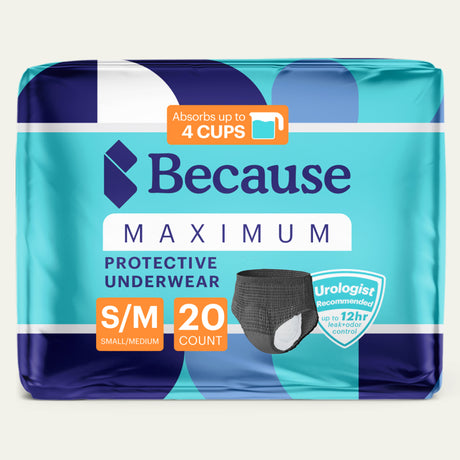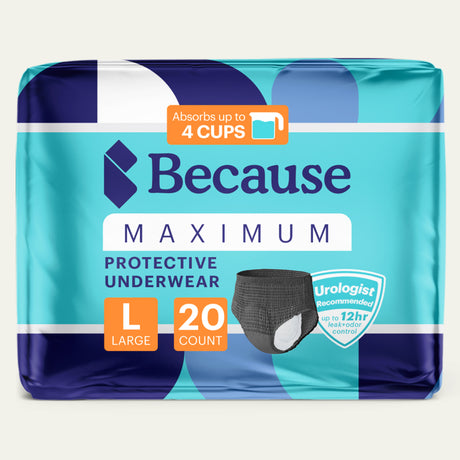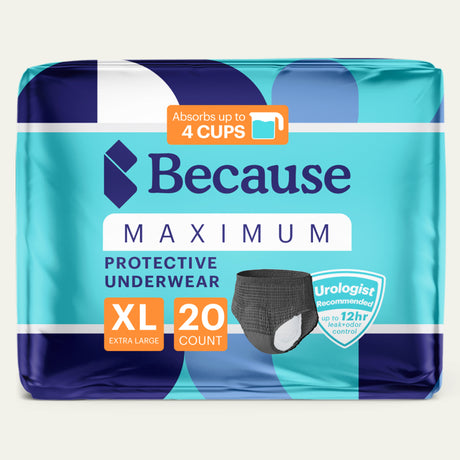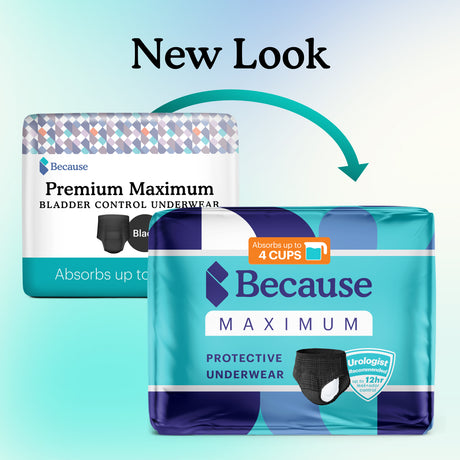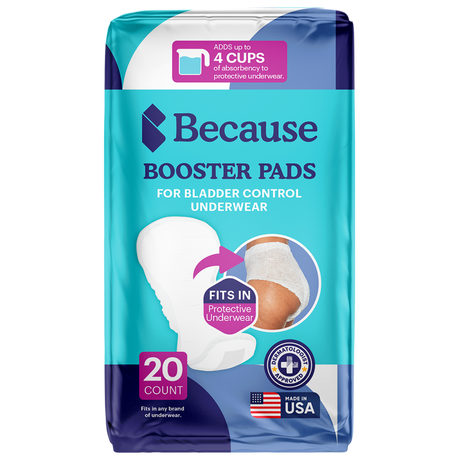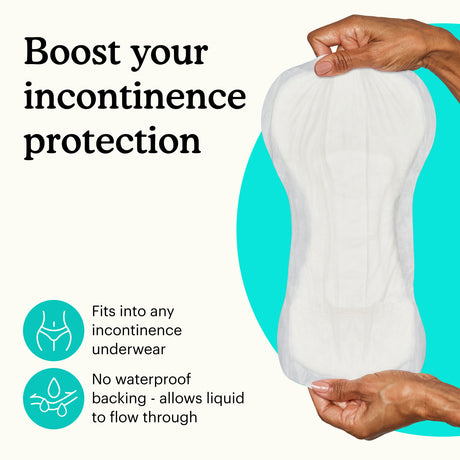Medically reviewed by Dr. Temitope Rude, MD
If you have a constant and strong urge to urinate, empty your bladder more than 8 times a day, or use the bathroom frequently at night, you may have bladder irritation or an overactive bladder. Overactive bladder (OAB) is characterized by these intense symptoms and the need to go, even if you’ve emptied your bladder.
This challenge is common, as over 33 million Americans live with OAB and its symptoms. Thankfully, there are many ways to treat an overactive bladder. One common cause of OAB symptoms is bladder irritation, and one of the easiest ways to treat it is by controlling your diet.
What Is Bladder Irritation and What Are the Symptoms?
Bladder irritation is when the lining of the bladder becomes inflamed, whether chronically or temporarily (as from a urinary tract infection). Some medical conditions like interstitial cystitis and overactive bladder can lead to a chronically irritated bladder. Common symptoms of bladder irritation include:
- Urinating more than 6 to 8 times per day
- Feeling a sudden, strong need to urinate
- Bedwetting or waking up in the middle of the night to urinate
- Pain and pressure in the lower abdomen
Common Food & Drinks That Irritate the Bladder

Changing your diet can be a simple way to calm your bladder. Let’s talk about common foods that irritate the bladder and urethra.
Caffeine
Many people develop bladder irritation from the caffeine in coffee, tea, energy drinks, and other beverages. The substance may have a diuretic effect on the bladder’s smooth muscle. In other words, it may cause involuntary bladder contractions, making you urinate more often. Additionally, many caffeinated drinks are carbonated which is another bladder irritant.
Cutting out caffeine can be difficult, so start slowly by replacing your cup of coffee in the morning with warm water mixed with lemon or decaffeinated tea. Replacing caffeinated beverages with other drinks can reduce the risk of dehydration, which can also worsen overactive bladder symptoms and bladder irritation. Caffeine is also present in some medications and supplements.
Alcohol
For many people, alcohol irritates the bladder. In addition to triggering irritation, alcohol increases urination, like caffeine and other diuretics. This effect can lead to an increase in urinary frequency. Elderly people who have difficulty getting to the bathroom may be more at risk for accidents due to increased urination.
Individuals with bladder problems have different tolerances when it comes to alcohol. One drink may be too much for some people, while others may not develop bladder pain and other symptoms until they consume two or three drinks.
Spicy Foods
Spicy foods are a very common bladder irritating food. Just like they can burn the mouth and tongue, they can irritate the bladder’s lining. People with sensitive bladders or urinary incontinence should avoid spicy seasonings, sauces, and even hot peppers while figuring out which foods trigger irritation.
Artificial Sweeteners
Avoiding artificial sweeteners may seem like an odd correlation, but our bodies filter out these products through urine. If we consume too many sweeteners, our renal system works overtime to filter them out and keep our bodies in balance. Sweeteners such as aspartame and saccharin can irritate the bladder, and you’ll find them in diet sodas or other zero-calorie beverages.
Tomatoes and Tomato-Based Products
Tomatoes are highly acidic and commonly cause bladder irritation. Raw tomatoes aren’t the only worry; tomato sauce and other tomato-based products (like ketchup) can also trigger an inflammatory response.
Chocolate
It may come as a surprise, but milk chocolate contains about one-fourth of the caffeine in a cup of coffee. If you don’t want to cut out chocolate completely, try eating white or dark chocolate, which usually contains less caffeine. If you also want to avoid artificial sweeteners, dark chocolate is the best choice.
Fried and Fatty Foods
Greasy fried and fatty foods can lead to urgency and other bladder inflammation symptoms. Examples of fried and fatty foods to limit or avoid include cheese or other dairy products, bacon, lunch meats, mayonnaise, fatty cuts of beef and pork, and fast food like French fries and deep-fried fish sandwiches. Fried and fatty foods are also highly processed which can contribute to bladder discomfort.
Citrus Fruits
Although they’ve got a bunch of healthy nutrients like vitamin C, citrus fruits are acidic foods and can be harsh on the bladder. For instance, oranges, lemons, limes, grapefruit, and mandarins can irritate your bladder. You may find that this problem only occurs when you eat raw fruits or drink juice or that citrus bothers you in all forms.
Artificial Food Additives and Preservatives
Food and drinks that contain food additives and preservatives like MSG can cause sensitivity reactions in some people. You’ll most likely find additives and preservatives in highly processed foods like frozen dinners, potato chips, bottled sauces and dressings, bakery products like cakes and muffins, and fast foods.
Best Food & Drinks for Bladder Health

As you modify your diet to avoid irritating foods, you can curb hunger and keep your diet in balance by increasing your intake of bladder-friendly foods. The good news is that there are many delicious options you can enjoy. Here are some favorites to try.
Water-Rich Fruits and Vegetables
Fruits and vegetables containing large amounts of water can increase fluid intake and support bladder health. Some examples include melons, strawberries, pineapples, peaches, and apples. Try cranberries and cranberry juice, which may reduce the risk of bladder infections.
Vegetables that contain a lot of water include celery, broccoli, and cucumber. Eat these fruits and vegetables raw to get as much water as possible.
Soups and stews can also boost your fluid intake. Remember to choose ones without bladder irritants like tomatoes.
Fiber-Rich Foods
Fiber is an essential part of a healthy diet. It supports digestion and even heart health. If you suffer from bladder conditions, fiber is helpful because it may reduce the risk of constipation. Constipation can worsen symptoms for people with bladder problems because built-up waste can put pressure on the bladder. Fiber addresses this problem by adding bulk to bowel movements and making it easier to pass stool.
Some foods rich in dietary fiber include fruits, vegetables, whole grains, beans, and legumes. Aim to get fiber at every meal to support bladder health and overall well-being.
Probiotic-Rich Foods
Probiotics are beneficial bacteria that keep harmful microorganisms in the stomach, urinary tract, and vagina in check. Consuming foods that contain probiotics may keep microflora balanced to support urinary health. Foods that are good sources of probiotics include yogurt, sauerkraut, kefir, tempeh, and kimchi.
Antioxidant-Rich Foods
Antioxidants are nutrients commonly found in plant-based foods like whole grains, fruits, and vegetables. They protect cells throughout the body from damaging free radicals. Research indicates these reactive particles may contribute to inflammation in people with overactive bladder. Consuming foods rich in antioxidants may lessen the effects of free radicals, potentially easing discomfort. Some foods packed with antioxidants include broccoli, spinach, artichokes, pumpkins, radish, blueberries, blackberries, and sweet potatoes.
Water
Hydration is essential for maintaining a healthy bladder, as it helps flush out toxins and reduce the concentration of minerals that can lead to bladder irritation or bladder infections. By staying well-hydrated with water, you support optimal bladder function, reduce the risk of developing urinary tract issues, and promote overall urinary health.
The Connection Between Food and Bladder Irritation
What you eat and drink can affect bladder irritation. Some compounds in foods and fluids get filtered out by your kidneys. These organs produce urine to rid your body of liquid waste. Urine travels through tubes called ureters. It remains stored in the bladder until you have enough urine to urinate.
Until it’s time for you to use the bathroom, irritants from foods and drinks come in contact with the bladder's lining. If you’re sensitive to these substances, your immune system may release chemicals to protect your bladder, triggering inflammation that causes bladder irritation symptoms.
Identifying Your Bladder Irritant Food Triggers
When it comes to bladder irritation triggers, everyone is different. Things that irritate one person’s bladder may have little to no effect on another’s. As a result, you’ll need to experiment to determine what foods irritate the bladder for you.
One way to start is to eliminate all common bladder irritants, then add foods and drinks back individually. This way, you can quickly identify which ones cause symptoms.
Another option is to keep a food diary. With this approach, you don’t make any significant changes to your diet. Instead, you record everything you eat and drink each day. For each journal entry, rate your bladder irritation on a scale from 1 to 10, and write a short description of what you experienced.
Over time, you can look for patterns to identify triggers. For example, you may find that you only experience discomfort when you consume acidic fruits. Finally, consult a healthcare professional for more advice on what foods and drinks you should avoid to help soothe your bladder irritation.
Lifestyle Strategies to Promote Overall Bladder Health

Overactive bladder and bladder irritation don’t have to rule your life. Replacing drinks and foods irritating the bladder with bladder-healthy foods can help you regain control. Follow these tips to complement your diet and further control symptoms.
Talk to Your Doctor
Partner with your healthcare provider to complete a treatment plan for overactive bladder or urinary incontinence. Your medical provider can give you personalized advice about diet and fluid intake and may be able to prescribe medication or recommend other treatments to manage symptoms. You can also talk to your doctor about whether alternative therapies like acupuncture for overactive bladder may benefit you.
Prioritize a Balanced Diet and Hydration
Eating a well-balanced diet and drinking plenty of water is vital for bladder health and the rest of your body. If you cut back on beverages to avoid bladder irritants, increase your water intake to match. Try the U.S. Department of Agriculture’s MyPlate method for an easy approach to healthy meal planning. It recommends filling half your plate with fruits and vegetables, a fourth with whole grains, and the rest with lean protein.
Maintain a Healthy Weight
People with a high body mass index may be more prone to urinary incontinence, overactive bladder, and other bladder problems. Carrying extra body weight puts more pressure on the bladder and can also restrict nervous system activity and blood flow. Eating a well-balanced diet, paying attention to portion size, and exercising can help you lose or maintain weight.
Schedule Regular Bathroom Breaks
Holding urine can worsen bladder irritation by prolonged exposure to harsh substances. Make regular trips to the bathroom throughout the day to ensure you’re going often enough. Urinating may also reduce your risk of urinary tract infections, as urine helps flush harmful bacteria from the bladder and urethra. If you struggle with frequent urges, talk to a urologist or your doctor about how bladder training can help you regain control over your bathroom schedule.
Practice Pelvic Floor Exercises
Your pelvic floor muscles provide support for your bladder. In women, pregnancy, childbirth, and menopause can cause a weakening of these muscles. When your bladder doesn’t have enough support, you’re more likely to experience stress incontinence and urine leakage when you sneeze, laugh, cough, or exercise. Weak pelvic floor muscles can also contribute to other types of incontinence.
Like any muscle in the body, your pelvic floor muscles can get stronger through exercise. Perform pelvic floor exercises regularly to build muscle tone and give your bladder more support.
Take Bladder Support Supplements
Bladder support supplements can complement your healthy eating plan. They contain naturally derived ingredients, vitamins, and other nutrients shown to play a role in urinary function or ease symptoms of bladder issues.
Because bladder supplements can help you support bladder health. You can find products for UTI prevention, reducing symptoms of overactive bladder, and more. Discover all the high-quality bladder health supplements currently available to complement your healthy diet.
The Bottom Line
In summary, being mindful of the foods and beverages you consume can play a significant role in managing bladder health. By identifying and reducing the intake of bladder irritants, you can help alleviate symptoms and improve your overall comfort. Remember, everyone's body responds differently, so it's important to listen to your body and make adjustments that work best for you.
Frequently Asked Questions:
What can I drink to soothe an irritated bladder?
To soothe an irritated bladder, opt for plain water to stay hydrated and dilute potential irritants in your urine. Herbal teas like chamomile, which are caffeine-free, can also be calming and gentle on the bladder. Avoid drinks that are acidic, caffeinated, or alcoholic, as they may worsen irritation.
Is milk a bladder irritant?
It depends. Milk is not typically considered a bladder irritant for most people and can be a soothing option. However, some individuals with lactose intolerance or dairy sensitivities may find that milk aggravates their bladder. It's best to monitor your body's response to determine if milk affects you.
Could bladder irritation be a sign of disease?
Yes, bladder irritation can be a sign of an underlying disease or condition. Common causes include urinary tract infections (UTIs), interstitial cystitis, bladder stones, or, in some cases, more serious conditions like bladder cancer. If you experience persistent bladder irritation, it's important to consult a healthcare provider for a proper diagnosis and treatment.
How can I manage my bladder irritation?
To manage bladder irritation, stay hydrated by drinking plenty of water and avoid irritants like caffeine, alcohol, and acidic foods. Applying a warm compress to the lower abdomen can also help relieve discomfort. If irritation persists, consult a healthcare provider for further guidance.

Dr. Temitope O. Rude is a Clinical Assistant Professor at Stanford Urology. Dr. Rude received her B.A. in Neurobiology at Harvard University, and her MD from Stanford University. She completed her urology residency at New York University, followed by a fellowship in Female Pelvic Medicine and Reconstructive Surgery (FPMRS) at USC in 2020. Her research focuses on improving patient-reported outcomes post-surgery for pelvic organ prolapse, alongside groundbreaking work in the medical and surgical management of neurogenic bladder and complex voiding dysfunction.
Sources:
National Association for Continence. (n.d.). Overactive Bladder. https://www.nafc.org/overactive-bladder
Bladder and Bowel UK. (n.d.). Eating Your Way to a Healthier Bladder and Bowel. https://www.bladderandbowel.org/news/eating-way-healthier-bladder-bowel/
National Center for Complementary and Integrative Health. (2016). Cranberry. https://www.nccih.nih.gov/health/cranberry
National Center for Biotechnology Information. (2021). Anti-Inflammatory Effects of Cranberry Proanthocyanidins in a Porcine Model of Porcine Epidemic Diarrhea Virus Infection. Frontiers in Veterinary Science, 8, 8199707. https://www.ncbi.nlm.nih.gov/pmc/articles/PMC8199707/
U.S. Department of Agriculture. (n.d.). MyPlate. https://www.myplate.gov/eat-healthy/what-is-myplate
